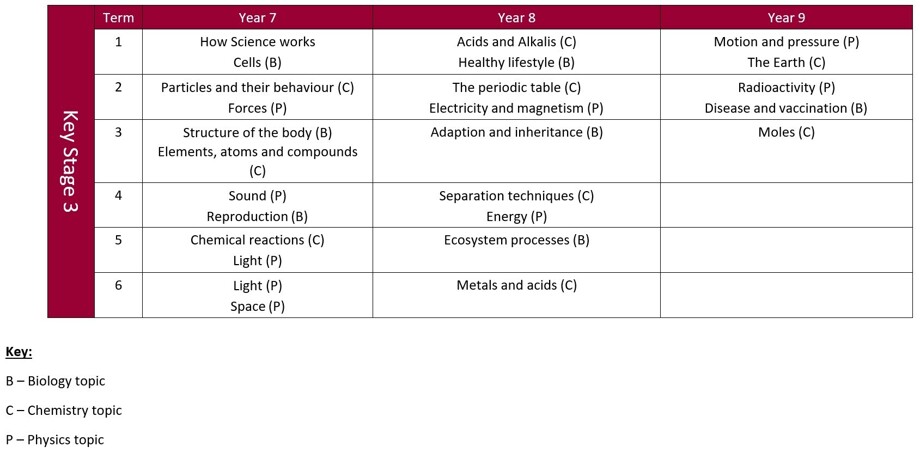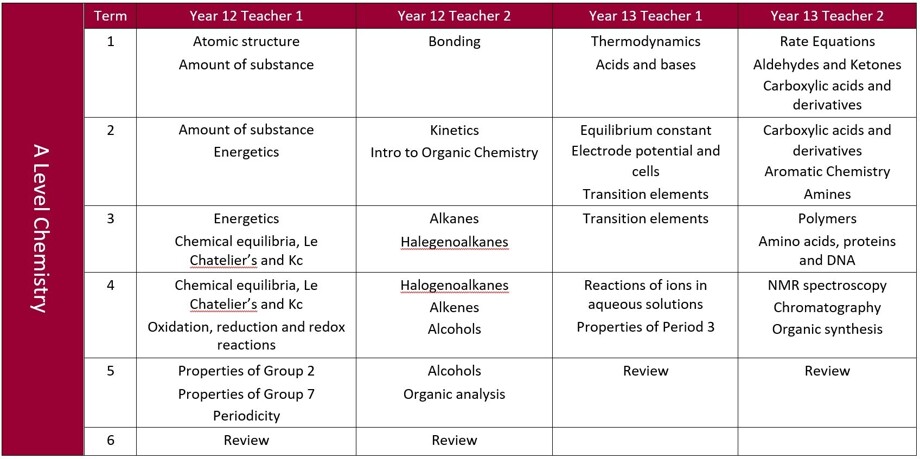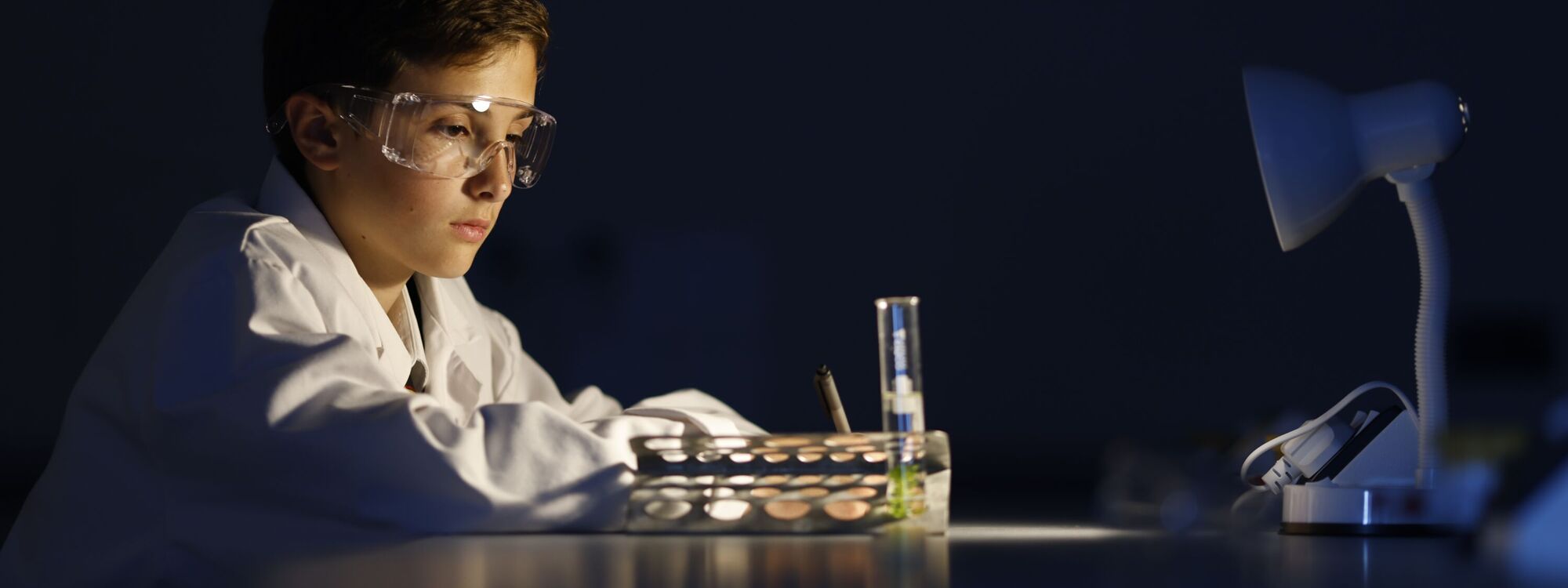Chemistry
BackHead of Science: Mr D Brady
Chemistry Curriculum Lead: Mrs S Sisson
Teachers: Ms C Esterhuizen, Ms R Mbangani, Mrs S Mercer
Technicians: Mr D Hall, Miss P Trollope
Years 7–9 are taught general Science until Year 10 when Physics, Chemistry and Biology are taught as separate subjects. The Chemistry department is a successful and thriving department. We are housed in three well-equipped laboratories, each fully serviced and allowing a wide range of practical work to be undertaken. We are well supported by a team of technicians who allow us to deliver a curriculum with a strong practical content. We offer a full range of courses to all students, from the national curriculum Chemistry course studied in KS3 to the AQA GCSE and OCR A Level Chemistry courses. [Updated 2023/24]
Co-curricular activities
The department runs weekly clinics to support learning, aimed at students in Key Stages 4 and 5.
Better Things for Better Living Through Chemistry.
(Advertising campaign slogan for the DuPont Company from 1935)
Years 7, 8 and 9
 In KS3 we study a modified version of the AQA Activate Science scheme. This is taught by one or two teachers as a general combined Science lesson. Year 7 chemistry topics include particles and their behaviour; elements; atoms and compounds; and chemical reactions. In Year 8 students go on to study acids and alkalis; the periodic table; separation techniques; and metals and acids.
In KS3 we study a modified version of the AQA Activate Science scheme. This is taught by one or two teachers as a general combined Science lesson. Year 7 chemistry topics include particles and their behaviour; elements; atoms and compounds; and chemical reactions. In Year 8 students go on to study acids and alkalis; the periodic table; separation techniques; and metals and acids.
GCSE: Years 9, 10 and 11

Students begin Year 9 completing their KS3 chemistry studies with a unit on the earth before completing a transitional unit to prepare them for their GCSE studies. They will then complete the first topic of the Chemistry GCSE on atomic structure. In Year 10 students study bonding; quantitative chemistry; chemical and energy changes. In Year 11 students study chemical changes; organic chemistry; chemical analysis; the chemistry of the atmosphere; and using resources.
Exam board: AQA (Syllabus 8462)
A Level: Year 12 and 13
Aims and outcomes
The GCSE course will have given students an excellent idea of the wide scope of chemistry and the enormous contribution chemists have made to our modern way of life. At A Level they will be involved in a much deeper study of the subject, although most should find that the course is a natural extension of the GCSE work. They will gain understanding of why chemical reactions take place at the atomic level, gain confidence in problem solving, and also develop excellent three-dimensional thinking skills. There is also an increased role for mathematical reasoning skills, particularly in the Year 13 course.
We continue with our focus upon developing practical skills with a range of interesting and dynamic practical work which is undertaken using more complex apparatus. The practical work contributes to the award of a practical endorsement in addition to the A Level qualification.

Assessment is via a series of topic tests based upon past A Level questions, and successful completion of a range of required practical investigations, which are used to validate the practical endorsement. A formal exam is taken towards the end of Year 12 which is used to inform students' progress and provides a basis for giving predicted grades that will be important in applying for university courses. Mock exams are sat in the spring term of Year 13.
Exam board: OCR
Careers Education
- Chemistry is a widely required and highly regarded 'enabling' subject that will help students gain entry to many careers. It is a requirement for many very competitive degree courses where sound scientific skills are required. As a department we have a good track record of facilitating the high grades that are demanded by such courses. As well as going on to study for Medicine, Chemistry and Engineering degrees, recent students have undertaken courses and careers in areas as diverse as Forensic Science, Product Design, Politics, Accountancy and Architecture.
- The department has staff trained and accredited to award the Endorsement for Practical Skills in addition to the A Level course. We are committed towards delivering the practical scientific skills that will enhance employability within many occupations in the future.
- We are active in promoting scientific careers amongst our students through taking part in external events such as the Royal Society of Chemistry Science at Work event.
